From poetry and autobiography to "Mediterranean Noir," this list of ten literary treasures translated into English gives powerful insight into the Greek psyche.
Reading literature is the ultimate escape, an opportunity to travel through the pages of a book to unknown spaces, worlds, and even universes. It is an introduction to new experiences and realities.
If one is interested in understanding more about the Greek mentality, what makes people “tick,” reading the country’s literature is perhaps the best way to start.
In the list that follows, Greece Is presents ten books (translated from Greek to English), in the hope that you will be motivated to explore their worlds further. Enjoy!
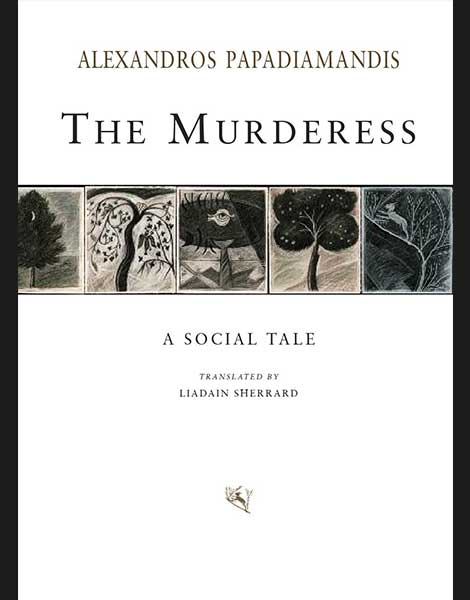

The Murderess (1903) – Alexandros Papadiamantis
“The Murderess” is a short story set on Papadiamantis’ native island of Skiathos. First impressions may lead one to conclude that “The Murderess” is a crime story, but it’s more than that.
The story is set in the late 19th century and the main character is an old woman living on the fringes of society, Hadoula, a herbalist and healer by trade. At the beginning of the story, the reader may find her repugnant but, with the skill that the writer employs in presenting her harsh life on the island, it becomes easier to empathize with her without, certainly, condoning her actions. (It is, in this way, a bit like Dostoevsky’s “Crime and Punishment.”)
“The Murderess” is regarded as Papadiamantis’ best work.
Remember, Body (2015) – Constantine P. Cavafy
Along with Giorgos Seferis and Odysseas Elytis, the Alexandrian poet (1863-1933) is probably one of the most widely read and influential of all the modern Greek poets.
In this Penguin Books anthology of his erotic poems, you’ll find some verses lamenting the loss of desire and others praising the once-tasted perfection of love. Much of the musicality and particularities of Greek language might have been lost in translation in this small booklet, but it offers insight into Cavafy’s rich, sensual universe.
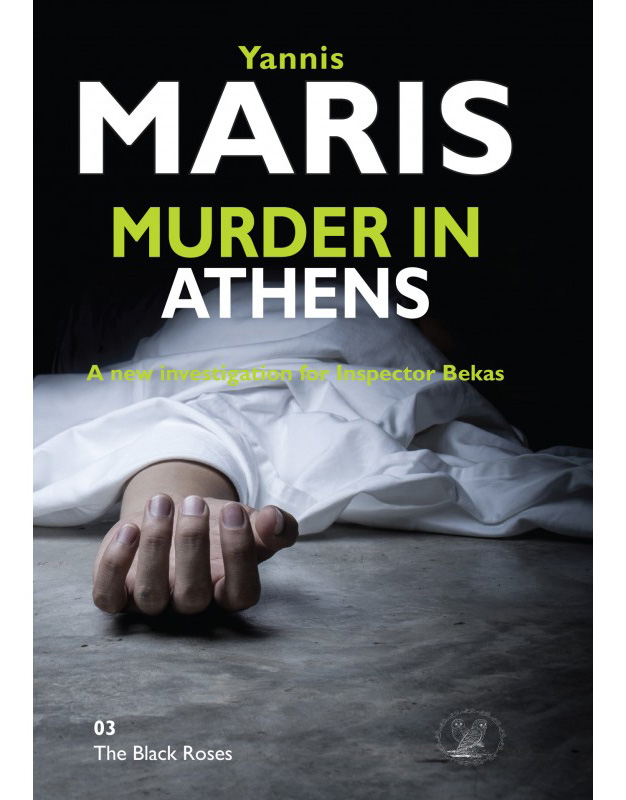
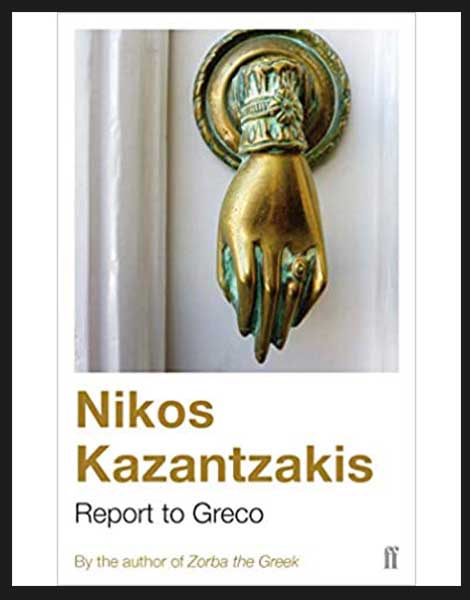
Murder in Athens (1953) – Yannis Maris
Greece might not have the same tradition of crime writing that the Nordic countries do, but it does have plenty of history. In 1953, the Greek journalist Yannis Tsirimokos began publishing a chapter a week of a first-of-its-kind Athenian crime novel in a magazine. His tale, originally published under the title “Crime in Kolonaki,” was so successful that it was later made into a movie and Tsirimokos went on to publish many more crime novels, all under the pseudonym Yannis Maris.
The novel opens in a Kolonaki apartment, where a businessman has been found dead. The son of the prime suspect sets out to find the truth and prove his father’s innocence, with the help of Maris’ hero, Inspector Bekas.
The novels of Yannis Maris are considered to be part of the Greek contribution to the genre known as “Mediterranean Noir,” alongside works by writers such as Jean-Claude Izzo, Maurice Attia, Andrea Camilleri, and Manuel Vazquez Montalbán.
Report to Greco (1961) – Nikos Kazantzakis
Nikos Kazantzakis is considered a giant of modern Greek Literature. Deeply influenced by his studies of philosophy and his travels through Russia and China, he explored, both through his own works and translations that he undertook, existential themes including the personal discovery of one’s true self and, as the scholar Peter Bien describes, “the reconciliation of Eastern instinct with Western reason.”
Among his most well-known works are “Zorba the Greek,” “The Last Temptation of Christ” – condemned by both the Catholic and Orthodox churches and adapted for film by Martin Scorsese – and “Christ Recrucified,” the TV adaptation which was one of the first mega-hits on Greek television.
It is hard to choose between his books, but we’ve decided to recommend his autobiographical novel “Report to Greco,” whose first pages are considered mandatory reading in the Greek school system.
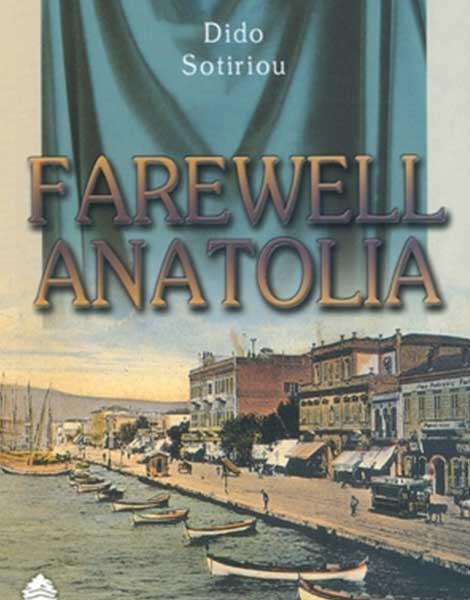
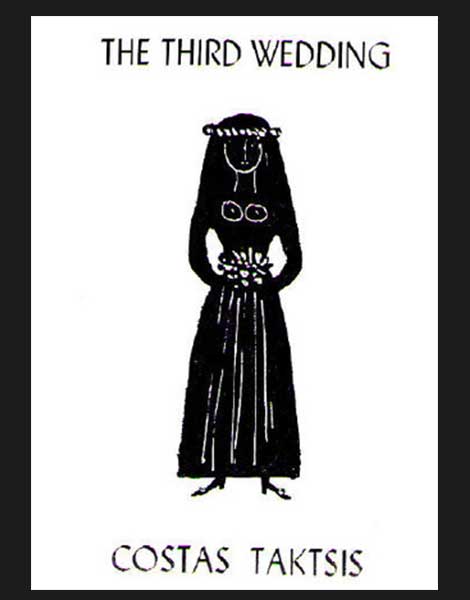
Farewell Anatolia (1962) – Dido Sotiriou
This novel, originally titled “Bloody Earth,” tells the life story of Manolis Axiotis, from his childhood in a village in Minor Asia where Greeks and Turks were living in harmony together, to his service in the Ottoman empire’s Labor Battalions during World War One, through to his recruitment into the Greek Army and his experiences during the fighting for, and destruction of, the city of Smyrna.
Dido Sotiriou mixed her own experiences into the narrative – she came from the city of Aydin in Ottoman Turkey – with stories she had inherited from others to create a best-selling novel that has been translated into many languages and adapted for television in 2008.
The Three Wedding Wreath (1962) – Kostas Taktsis
Set in four different periods of Greek history – the National Schism, the catastrophic Asia Minor campaign, the Interwar Period and the German Occupation, this novel tells the story of two friends, Nina and Hecuba, who present the climate of those different momentous periods through personal stories and spontaneously humorous “dialectic” monologues.
The semi-autobiographical book was rejected by three publication houses and published at the writer’s own expense without success. Nevertheless, it has gained considerable popularity over the years and, following Taktsis’ murder in 1988, “The Three Wedding Wreath” was adapted for television and more than once for the theater, lending strength to the argument that it’s one of the best examples of post-war Greek literature.
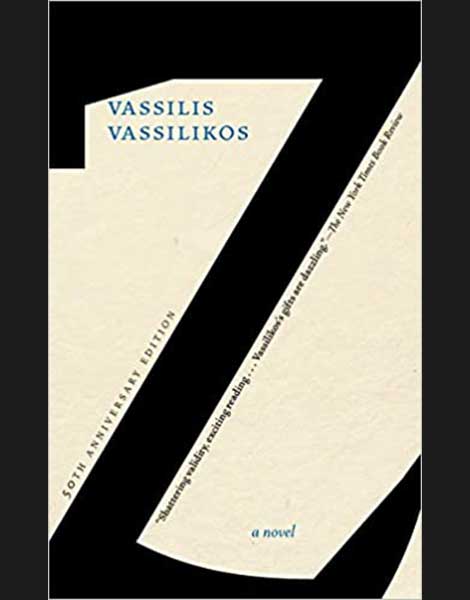
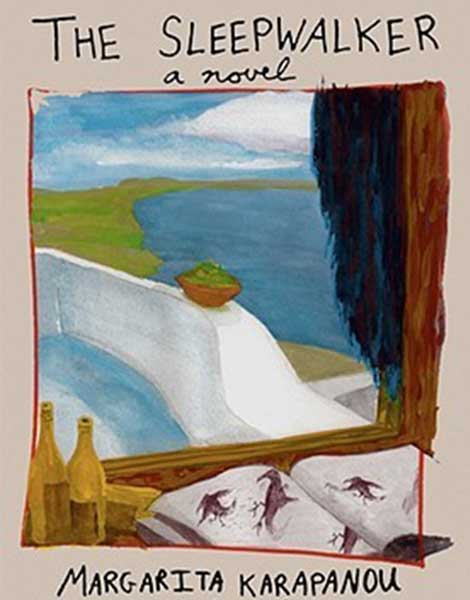
Z (1966) – Vassilis Vassilikos
In 1963, the assassination of Grigoris Lambrakis, the United Democratic Left MP and pacifist, by right-wing extremists in the center of Thessaloniki shook the Greek nation. His funeral, attended by 200,000 people, turned into a protest against the political cover-up of the case by the government and the army.
Vassilis Vassilikos gathered material from witness testimonies and other sources and created a “non-fiction novel” which was published during the trial of those accused of Lambraki’s murder. One year later, the Junta came to power in Greece and banned the circulation of the book. They would later do the same to the 1969 film adaptation by Costa-Gavras.
The title “Z” comes from the word “Zei” (pronounced Zee), which in Greek means “He is alive,” and became a popular slogan in the struggle against the dictatorship.
The Sleepwalker (1987) – Margarita Karapanou
Karapanou’s forceful and provocative writing style challenges her readers. In her second novel, a disappointed-at-mankind God vomits a new messiah onto a Greek island and into a setting reminiscent of the Tower of Babel.
Moving between genres, including magic realism and absurdism, “The Sleepwalker” was awarded the 1988 prix du Meilleur Livre étranger (Best Foreign Book Prize) in France.
It is one of most stimulating and difficult books in the modern literary canon, yet well worth a read.
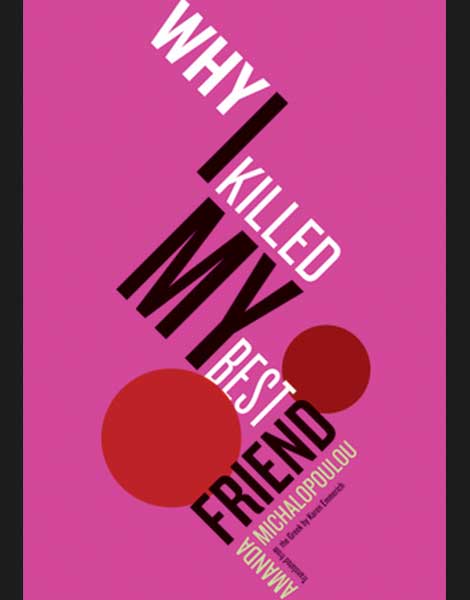
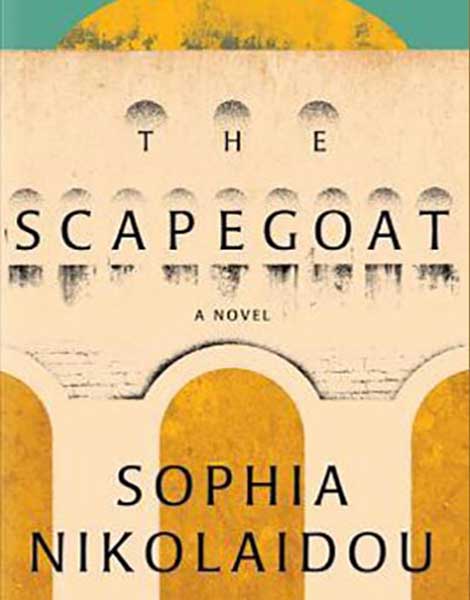
Why I Killed My Best Friend (2003) – Amanda Michalopoulou
A coming-of-age story concerning two friends is the main subject of Michalopoulou’s novel. A young girl relocates from Africa to Greece, where she struggles to adapt to life in the Greek capital. When she meets someone who is seemingly her polar opposite, however, a new chapter opens in her life, and a friendship begins that will bring unexpected consequences to both parties.
Through the characters’ participation in political activism during a period of change and instability, the novel explores the toxicity of close friendship and criticizes once-prevalent Greek political ideologies.
The Scapegoat (2012) – Sophia Nikolaidou
“The Scapegoat” is based in part on the unsolved murder of the CBS journalist, George Polk. In 1948, his body is found floating in the Thermaikos Gulf, just off the seafront promenade in Thessaloniki. Soon after, a Greek journalist is convicted for a murder he did not commit. Decades later, in the early 2000s, a high school student investigates the case, but who is going to listen to a kid?
Sophia Nikolaidou’s novel combines history and fiction and examines the many layers of Thessaloniki’s history and the secrets they hold, all through the eyes of the city’s youth, proving that, first and foremost, literature is life.









